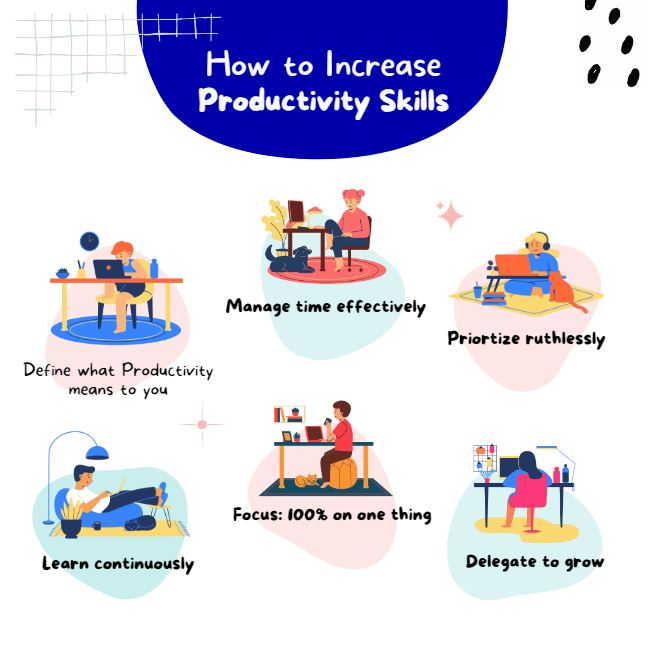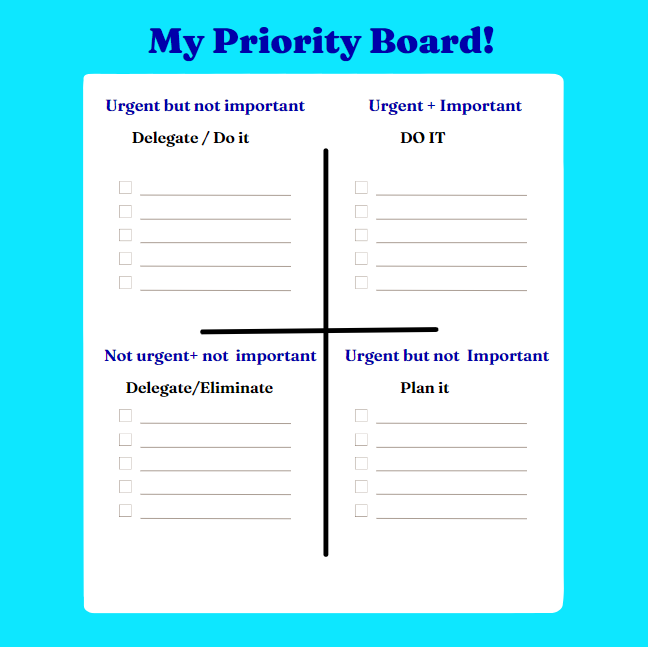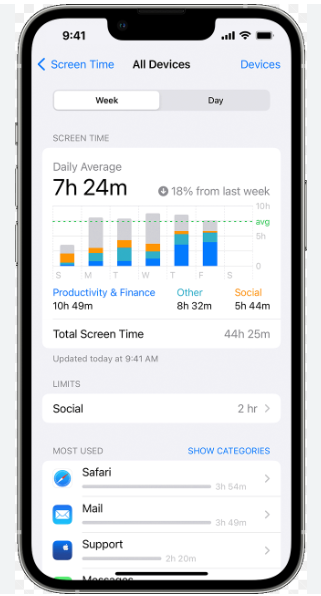8 Important Productivity Skills You Need In 2024

What is even productivity?
Productivity has a million versions and is often misunderstood as merely being busy. Let’s spend a minute on understanding what productivity means to you.
You cannot improve what you do not understand well. I can give you a list of 100 productivity skills, but it wouldn’t help you if you don’t what each of them mean to you.
Personal Goals and Values
Identify What Matters: Start by listing what you value the most, here are some inspirations (but please write your honest version in your head)
- The speed at which you complete tasks
- The quality of your output
- Maintaining a healthy balance between your professional and personal life
- The creative sparks that inspire your entire team
- The joy of contributing to your community
- The dollars you earn per hour
Consider how your daily activities contribute to your long-term personal and professional goals. Productivity for someone aiming for a leadership role might focus on developing management skills, whereas for a creative professional, it might mean dedicated time for creative thinking.
Value-Based Task Assessment: Regularly assess your tasks and projects – do they align with your core values?
If work-life balance is crucial, ensure your work schedule allows for personal downtime.
Understanding Your Work Style
- Recognize Your Patterns: Pay attention to how you work best. Do you excel when handling multiple tasks simultaneously, or does focusing on a single task yield better results for you? Understanding this can help tailor your work approach for maximum productivity.
- Environmental Factors: Your surroundings can significantly impact your productivity. Some thrive in a buzzing office environment, while others need a quiet, solitary space. Identifying the right environment that complements your work style is crucial.
- Response to Pressure: Reflect on how you handle pressure. Some find tight deadlines energizing and motivating, leading to a burst of productivity. Others might prefer a more measured pace with structured, predictable workflows.
- Personal Peak Hours: Everyone has certain times of the day when they are most productive. Identify these peak periods and plan your most challenging tasks accordingly.
- Work Habits and Preferences: Are you a planner who likes to have every detail mapped out, or do you prefer a more spontaneous approach to tasks? Understanding these habits helps in creating a work routine that naturally enhances your productivity.
By clearly defining what productivity means to you and understanding your unique work style, you can create a more tailored and effective approach to your work. This personal definition guides you in setting realistic, fulfilling productivity goals that resonate with your values and working preferences.
Now that you understand what productivity means to you, let’s look a little deeper at these skills and understand how to enhance them.
1- Time Management Skills
Everyone gets 24 hours a day. How you manage it with the many digital distractions is a key skill. I would even argue, our entire life is about time management.
Lack of discipline kills time more than anything else. Try to stick to you what you promise yourself to do.
To-do list: Creating a to-do list or schedule is the oldest trick in the book and still works. This allows you to plan out your day and prioritize tasks based on importance and urgency. And more importantly, it gives you something to track your progress.
Schedule time for digital distractions: You are going to do it anyway, might as well schedule time for it so it is easier to convince yourself when you get the urge to interrupt yourself in the middle of something important.
Break it down: Breaking down larger tasks into smaller, more manageable tasks can also help you make progress and stay motivated. Additionally, you can consider delegating tasks to others or using time management techniques such as the Pomodoro Technique, which involves working in focused, timed intervals.
Tools to help with time management
Here are some great printable time management charts. Feel free to use any one that works for you.
Digital tools such as productivity apps or time management software can help individuals track their progress, set reminders, and prioritize tasks.
Additionally, tools such as project management software or collaborative tools like Trello or Asana can be helpful for managing group projects or tasks.
2- Prioritization
Prioritization is knowing what delivers value for your time. Time management is like air, prioritization is like water – you need both to be productive regardless of your definition of productivity.
Strategies for effective prioritization

There are several strategies that can be used for effective prioritization. I recommend using the Eisenhower Matrix – dividing tasks into four categories based on their importance and urgency.
Another strategy is to focus on the 20% of tasks that will produce 80% of the results, known as the Pareto Principle.

Keep reviewing your priority often so you don’t lose a lot of time before realizing that it could have been spent better on something that had more value to you.
Tools to help with prioritization
There are various tools available to help with prioritization. Digital tools such as project management software, task lists, or to-do apps can help individuals prioritize their tasks and activities. Additionally, creating a priority matrix or using a time management system such as Getting Things Done (GTD) can help individuals better prioritize their workload.
Other helpful tools include productivity planners, goal journals, and progress trackers. By using these tools, individuals can better prioritize their tasks, focus on the most important tasks, and achieve their goals efficiently.
3- Focus and Concentration

Focus and concentration are like the grease and oil. It might appear like it, but the ability to focus on one thing is one of the most underrated essential productivity skills. You might have a mighty machine that can fly across the entire universe. But what use is it if you operate at 20% efficiency instead of 90%?
We all can agree that we need to get better at removing distractions and improve our focus and concentration. We all need more time in the ‘flow’ zone.
Strategies for improving focus and concentration
There are many good strategies for improving your concertation and focus, and they all start with you wanting it.
- Create a Distraction-Free Environment:
- Turn off non-essential notifications on your devices
- Use a clean, organized workspace to minimize physical clutter
- Use app blockers like Freedom or Cold Turkey to prevent digital distractions
- Implement the Pomodoro Technique:
- Work in focused bursts (typically 25 minutes) followed by short breaks (5 minutes)
- Use apps like Be Focused to help you stay disciplined
- Practice Mindfulness and Meditation:
- Allocate time for daily mindfulness exercises.
- Use guided meditation apps like Headspace or Calm to train your brain to focus and reduce anxiety.
- Maintain Physical Wellness:
- Regular exercise, such as brisk walking or yoga, can improve cognitive function and concentration.
- Ensure adequate sleep each night to refresh your mind and body.
- Use Focus-Enhancing Tools:
- Listen to instrumental or ambient music through apps like [email protected] to boost concentration.
- Try out focus-promoting gadgets or tools, such as fidget toys or standing desks, to keep your mind engaged.
4- Communication
Communication is your only tool for the world to know what you think. The quality of your thinking does not matter much if the quality of your communication is bad.
Strategies for improving communication skills
People tend to confuse communication skills with talking and presenting, the real communication beings with active listening.
Learning to shut and absorb what the other person is saying (or communicating with body language) is the key to having an impactful response.
Tools to help with communication
I’m a big fan personal growth. I highly recommend the following books to improve your communication skills
- How to win friends and influence people – Dale Carnegie
- Skill with people – Les Giblin
- Never split the difference – Christopher Voss and Tahl Raz
5- Delegation
You’ve heard many times before, but let me repeat anyway – “1+1 equals more than 2”. This is cliché, I know – but nothing is truer than that.
Why bother delegating
- Empowering Teams: Delegation is not just about offloading tasks; it’s about empowering team members. You when delegate a task to someone, you also sub-consciously give a little bit of self-belief for them. It is like planting a seed, you never know if a forest can come out of it – but it is worth trying.
- Expanding Capacity: When you delegate, you effectively expand your team’s capacity to handle more tasks and responsibilities, leading to increased productivity and the ability to tackle more complex projects. Building a cross-skilled team is a dream for many managers, but they do not pay attention to this one simple approach – delegating!
- Developing Talent: You can all all you want to motivate your employees, but nothing says it louder than giving them a task to do on their own (& sometimes with your support).
What Happens When You Delegate?
- Increased Efficiency: By delegating, you free up your own time to focus on high-level strategic planning and decision-making.
- Team Growth: Team members feel valued and trusted, which can boost their morale and commitment to the team and the organization.
- Skill Enhancement: You can identify and nurture future leaders by providing them with opportunities to take on more responsibilities.
- Better Time Management: It enables more effective time management within the team, as tasks are more evenly distributed.
Implementing Delegation Successfully
- Clear Communication: Clearly communicate the task objectives, expectations, and deadlines.
- Choose the Right Person: Match tasks with team members’ skills and career aspirations.
- Provide Support and Feedback: Offer guidance and constructive feedback, and be available to assist if needed.
- Follow-up: Regularly check-in and offer support.
6- Decision Making Skills
Life is just a series of decisions taken consciously, un-consciously and sub-consciously!
Why Bother with Decision Making Skills
Crucial Leadership Trait: Good decision-making is at the heart of effective leadership. It’s about assessing situations, weighing options, and choosing the most effective course of action with the knowledge you have at the moment.
Risk Management: Good decision-makers know how to balance risk with opportunity. They can identify potential challenges and opportunities, ensuring that their choices lead to positive outcomes.
Efficiency and Progress: Effective decision-making skills speed up the process of progress. They allow leaders and teams to move forward with confidence, without being paralyzed by indecision. In the long-term, indecisions cost a lot more than poor decisions.
What Happens When You Make Decisions?
Navigating Complexity: Leaders face complex situations daily. Effective decision-making skills help in navigating these complexities with clarity and purpose.
Building Trust: Consistent, wise decision-making builds trust within a team. It assures team members that they are on a sound path, guided by a competent leader.
Creating Opportunities: Decisions often open new doors and create opportunities that wouldn’t have existed otherwise. Each decision can be a stepping stone to new avenues for growth and innovation.
Implementing Decision Making Successfully
Gather Information: Start by collecting all relevant information. This could involve data analysis, consulting with experts, or seeking feedback from the team.
Analyze Options: Weigh the pros and cons of different options. Tools like SWOT analysis can be useful in this process.
Consider Long-term Impacts: Think about the long-term consequences of your decisions. How will they affect your team, project, or organization in the future?
Decisiveness: Once you’ve gathered information and weighed your options, be decisive. A timely decision is often as important as a well-thought-out one.
Learn from Outcomes: Reflect on the outcomes of your decisions. What worked well? What could be improved? Use these insights to refine your decision-making process.
7- Self-Care
Everything you care about in your life starts with you – the body and the mind. It is the glasses with which you see the world. How you take care of yourself will undoubtedly reflect in practically everything else you do.
Why Bother with Self-Care
Foundational for Performance: Just like a well-oiled machine performs optimally, self-care ensures that you are at your best, both mentally and physically. It’s about maintaining the balance that allows you to operate at peak efficiency.
Stress Management: In a high-pressure work environment, self-care acts as a buffer against stress. It helps in managing work-related pressure, preventing burnout, and maintaining overall mental health.
Enhances Creativity and Focus: Regular self-care practices can lead to improved focus and creativity. When your mind and body are well-rested and stress-free, they become fertile grounds for innovative ideas and sharp concentration.
What Happens When You Practice Self-Care?
Improved Resilience: Regular self-care makes you more resilient to the ups and downs of professional life. You’re better equipped to handle challenges and bounce back from setbacks.
Positive Work Environment: When leaders practice self-care, it sets a precedent for the entire team. It creates a work culture that values well-being, leading to happier, more engaged employees.
Long-Term Career Success: Self-care is an investment in your long-term career. It ensures that you have the vitality and vigor to pursue long-term goals and career aspirations.
Implementing Self-Care Successfully
Establish a Routine: Create a self-care routine that fits your schedule. It could include activities like exercise, meditation, or hobbies that relax and rejuvenate you.
Set Boundaries: Learn to say no and set boundaries to protect your time and energy. It’s crucial for maintaining work-life balance.
Regular Health Check-ups: Keep up with regular health check-ups and listen to your body’s needs. This includes getting adequate sleep and nutrition.
Mental Health Matters: Prioritize your mental health by seeking support when needed, whether it’s professional counseling or talking to trusted colleagues or friends.
Unplug and Recharge: Regularly take time to disconnect from work. This could be in the form of vacations, staycations, or simply unplugging from digital devices after work hours.
8- Continuous Learning
A single-celled organism that learnt how to adopt evolved into us – the ones writing & reading this blog. Productivity skills thrive on growth, and growth thrives on learning.
I won’t bore you trying to convince that learning is important. You know it, that is why you are here. These are my top recommended tools for learning.
- Book summary apps: They condense knowledge of entire books into 15 minute summaries. This is like getting the nutrients from the fruit without having to peel and squeeze.
- Audible: The biggest online library in the world. You’ll practically find every book that was of some significance in the world here.
- YouTube: The best free & open university that ever existed
There’s more, but you are smart enough to figure out the right one for you.
Wrap Up
Personal productivity skills are essential for improving productivity levels, reducing stress and achieving success in both personal and professional lives. While technical skills are important for performing specific tasks, soft skills, such as team working skill, problem solving skills, analytical skills and stress management skills, can make all the difference in enhancing productivity. Stress management techniques are important in maintaining a balanced work-life relationship and in preventing burnout.
Hopefully we have answered the question – how to enhance productivity (personal & professional) in this post. Take care & stay productive.
More from the author here.





